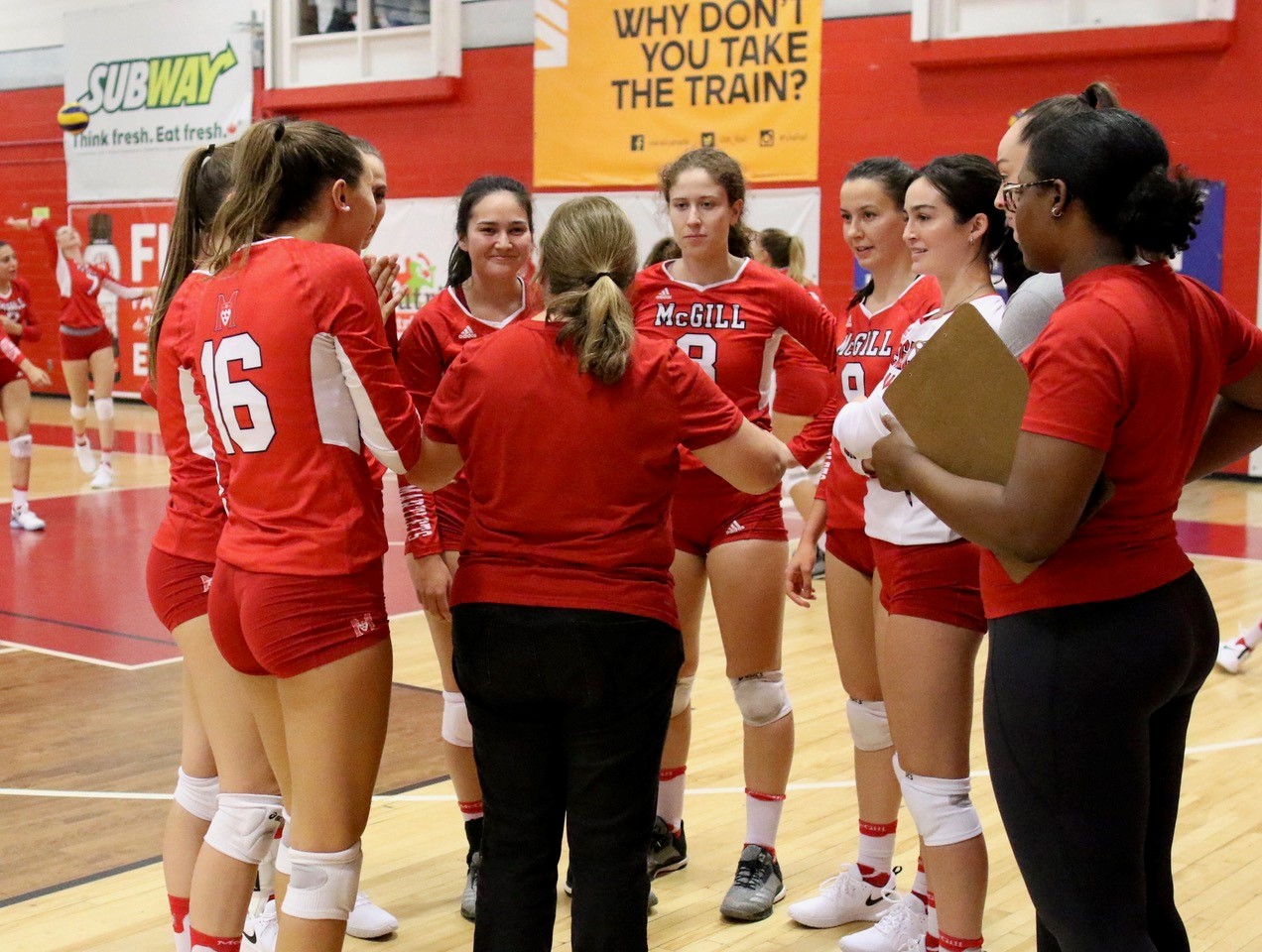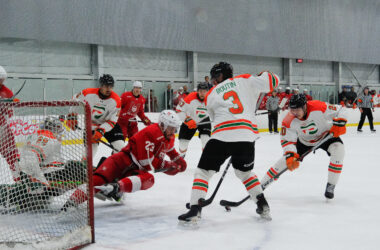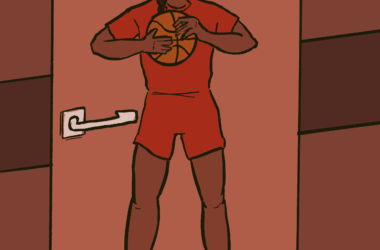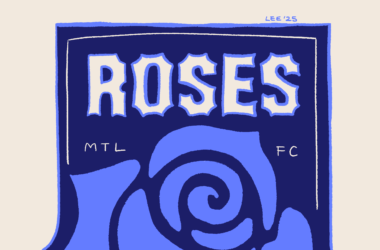Coaches, for better or worse, can change not only an athlete’s career, but their entire life. This is especially true for university athletes, who experience a major period of mental and social development in their lives while also competing for titles and championships. Balancing athletics with academic and social demands can be challenging, so the bond between an athlete and their coach is a vital one. Having someone who understands that there will be ups and downs in their sport, and their life in general, can be crucial for an athlete’s overall success.
Many student athletes think that coming to university will mean a dramatic shift in their relationships with coaching staff, as university rosters tend to be much larger than those of high school teams. Intuitively, one might think that smaller rosters help facilitate stronger relationships between players and coaches. However, fifth-year middle blocker for Martlet Volleyball Myriam Robitaille explained that this was not the case when she arrived at McGill.
“I thought [that] with the bigger group it would [feel more isolated], [but] I found the opposite,” Robitaille said. “Coming to university, […] what I [actually found] was another family here.”
As any McGill student can tell you, the academic workload of university is much greater than that of high school. For athletes, this work comes on top of hours of practicing their sport, lifting weights, and extra conditioning, as well as travelling for games and tournaments, all of which can be stressful. Having to balance athletics and academics can make being a university athlete more challenging than being a professional athlete in some respects.
“I played one year of [professional volleyball] last year,” Robitaille said. ”You only have [volleyball]. You only have to focus on training, eating well, and sleeping well. At university, it is the opposite. [It is] the most busy schedule you will [have] in your life.”
Thus, having a coach who understands that you have a life outside of sports is important. Robitaille believes that Martlet Volleyball Head Coach Rachèle Béliveau is a perfect example.
“I have an excellent relationship with Rachèle, and she is like a second mother to me,” Robitaille said. “I know [that] sometimes I [would be] overwhelmed and [need] more time to study, and she [would say], ‘Go home, study, and take the time to catch up and come to practice tomorrow or next week.’ When [I] felt very [overwhelmed] with school, she was so relaxed with it and so encouraging, which would take a lot of pressure off.”
While a good coach supports their athletes in all aspects of life, their primary job is to help athletes develop their skills. Personal growth, both as athletes and people, go hand-in-hand, however, as McGill Swimming Head Coach Peter Carpenter exemplifies. First-year swimmer Daphne Danyluk described the impact her coach has had on her performance.
“He has definitely changed me as an athlete,” Danyluk said. “I used to be very anxious about my [performance], which obviously did not lead to the […] results that I wanted. He helped me to have fun and enjoy the sport once again.”
Third-year forward for Martlet Soccer Giovanna Tiberio changed positions after coming to McGill. She explained that her coaches helped her thrive as a forward and realize the impact that her emotions had on her performance.
“It is not even funny how [much] my coaches have moulded me as a player,” Tiberio said. “I went from nothing to scoring multiple goals, receiving [MVP] of the game [awards], making an all-star team, and, more importantly, just being happy, […] comfortable, confident, and important when I stepped [onto] that field.”
University-level athletes spend an immense amount of time dedicated to their sport, and in doing so, they must make difficult sacrifices. Because of this, it is essential that they have mutual trust with their coaches.
“You spend up to five years competing for the university,” Danyluk said. “It is quite [a] long [time], so it’s good to have a good relationship between everyone on the team, including the coaches. I talk about my objectives and goals to my coach, but also I can talk to my coach about injuries or school problems, and it’s good to have someone who understands and is willing to help.”
Good coaches are also good listeners. They understand that all their athletes train differently and require different attention.
“A good coach would be someone who deals with everybody according to their individual goals,” Danyluk said. “Everyone has different objectives and goals in their sports, and that’s okay.”
Since many coaches at McGill have worked with a wide array of athletes over their tenures, they are able to understand and adapt to different types of learning styles and circumstances. For student athletes who are moving away from home for the first time, their coach fills the position of a mentor figure who they can depend on, where family members or teachers may have served before. The acts of mentorship from coaches often go well beyond the court or field as well, as coaches can provide important support for their players in general.
“On my way to my first ever practice with the Martlet soccer team, something personally devastating happened to me,” Tiberio said. “I messaged [Martlet Soccer Head Coach Jose-Luis Valdes] to advise him that I would not be able to attend because of personal issues, but that didn’t stop him. He called me, asked me where I was, and then met up with me. Through all my tears, he just listened to me. This is when I really began to understand who he was: A man who would drop anything and everything to make sure his players were okay, on and off the field. It’s so much more than just a team for him.”
The coaches at McGill are not only compassionate and caring towards their athletes, they also often have an impressive athletic resume. Béliveau, for example, was on one of three Canadian women’s volleyball teams to make it to the Olympics. Having someone like her that is both an accomplished athlete and a phenomenal coach can have an immense impact on their players.
“I think [that Béliveau is] just an excellent role model in general,” Robitaille said. “With a female coach, you can really relate, and I think she [understands] a little more what is happening [with] our emotions […] and our body, and in general how to reach us.”
For collegiate female players, having such capable role models also inspires them to become role models for the next generation. Tiberio pointed to the women who have broken barriers that were previously thought to be unbreakable and who laid the groundwork for the success of current athletes.
“I get to be a proud athlete and play with all these layers of privilege thanks to all that the women before us have accomplished and all the women now and thereafter will have accomplished for us,” Tiberio said.
By being a role model, a mentor, and a friend, coaches can help student athletes become the best versions of themselves. Because of this, many upper-year students plan on staying in touch with their coaches after graduation and may even become coaches themselves.
“It’ll be difficult to ever say bye,” Tiberio said. “I will be a proud alumna and plan on sticking around and helping as much as I can.”








